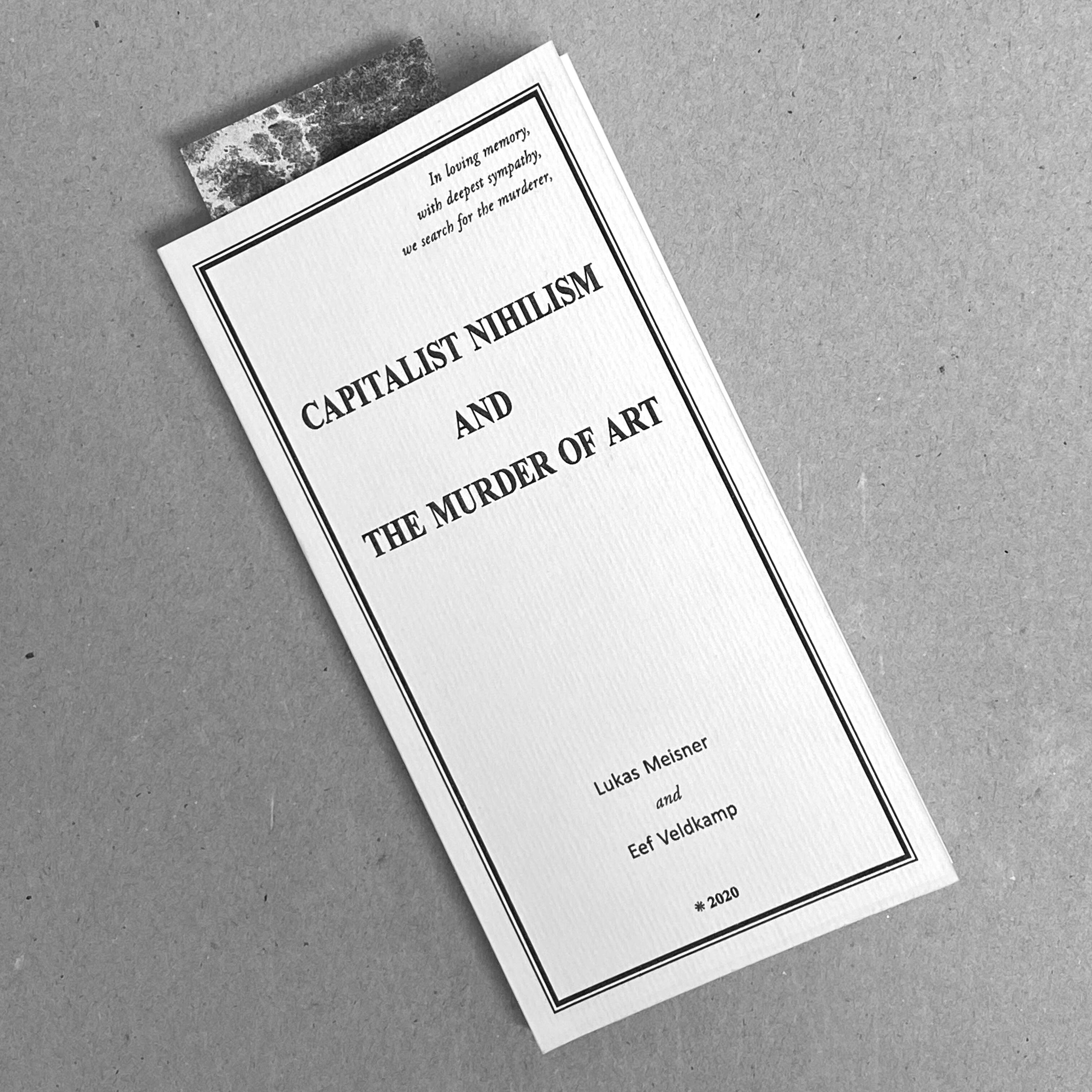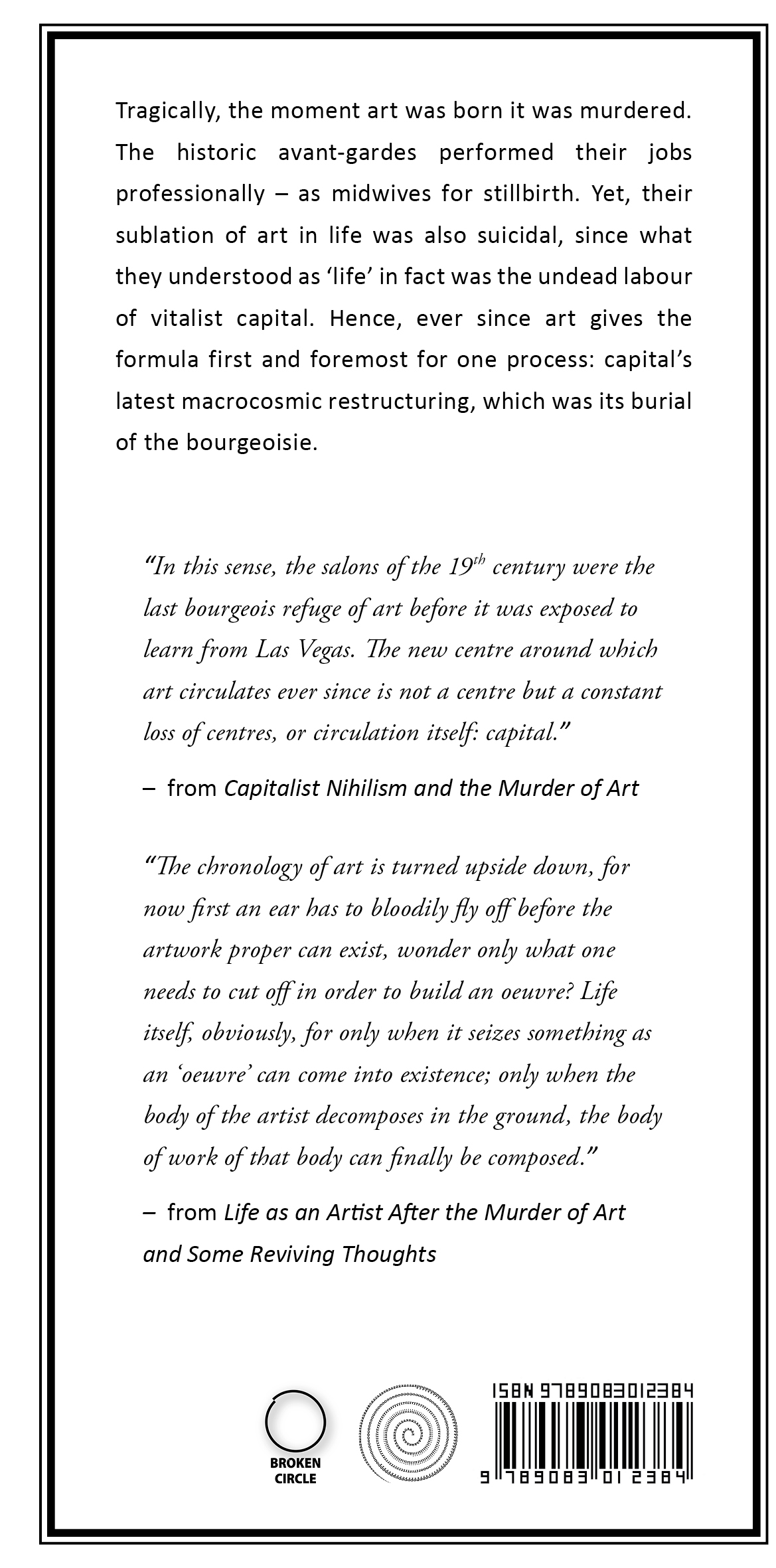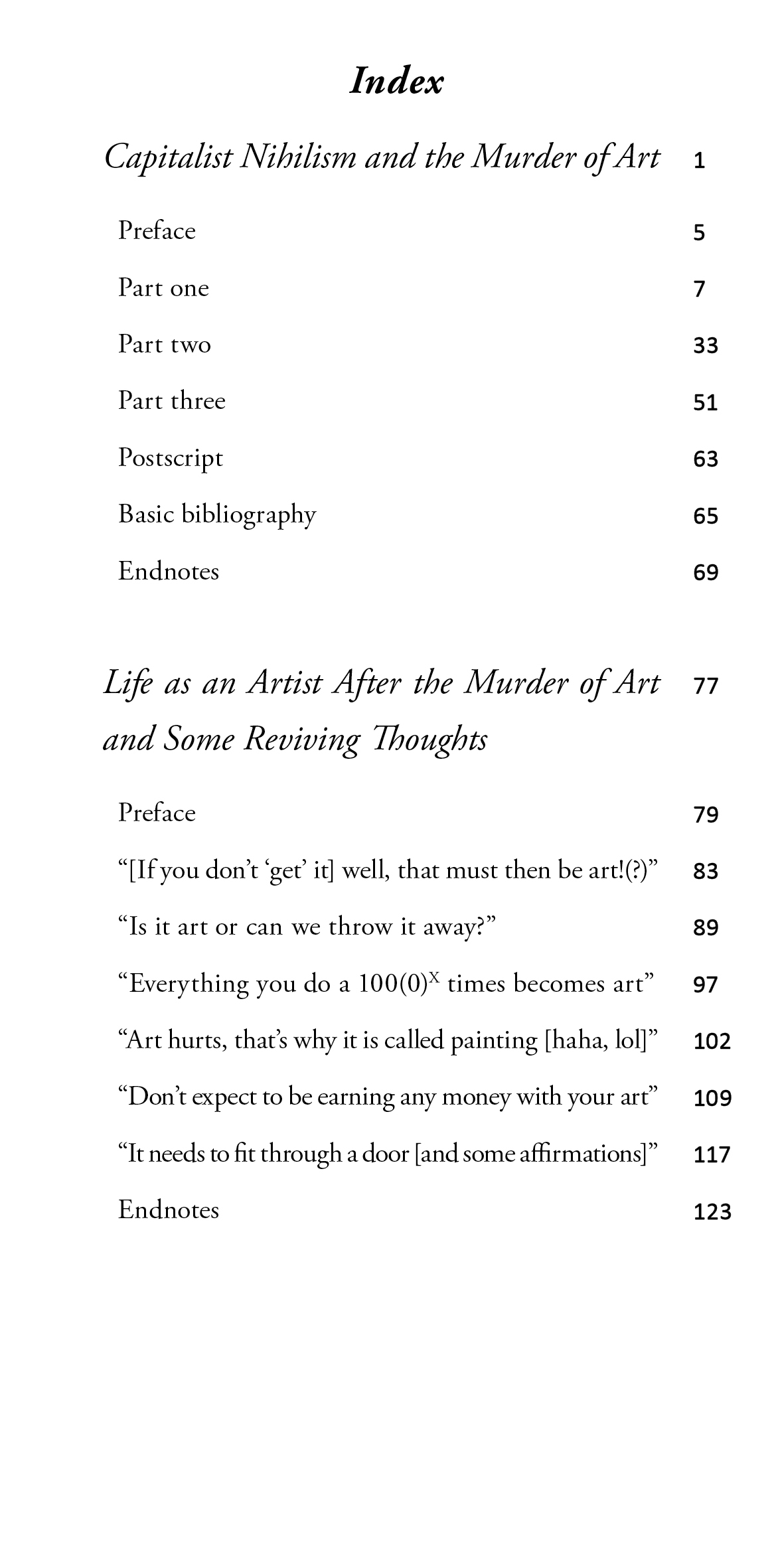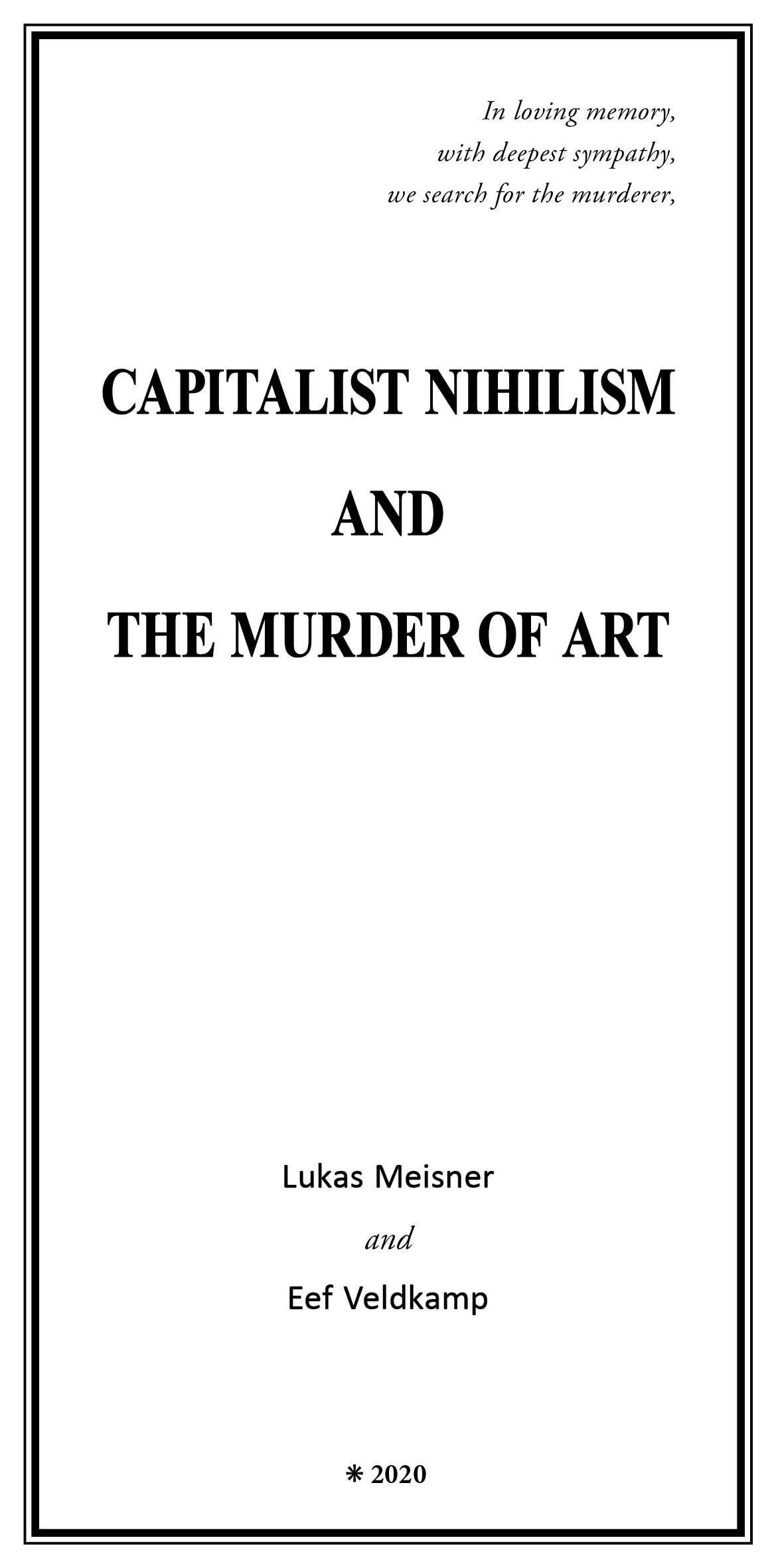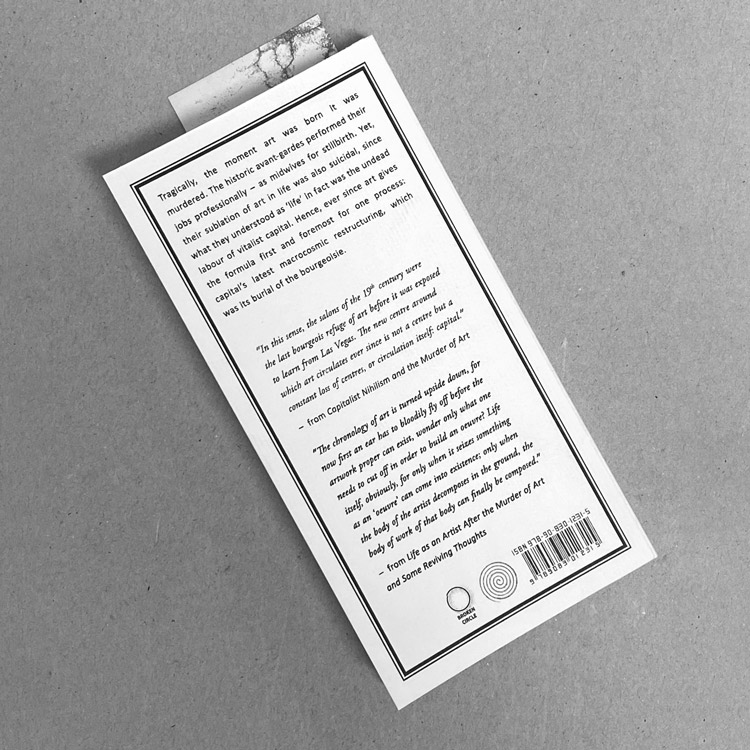Capitalist Nihilism and the Murder of Art - Lukas Meisner & Eef Veldkamp
€ 19.95
Tragically, the moment art was born it was murdered. The historic avant-gardes performed their jobs professionally – as midwives for stillbirth. Yet, their sublation of art in life was also suicidal, since what they understood as ‘life’ in fact was the undead labour of vitalist capital. Hence, ever since art gives the formula first and foremost for one process: capital’s latest macrocosmic restructuring, which was its burial of the bourgeoisie.
“In this sense, the salons of the 19th century were the last bourgeois refuge of art before it was exposed to learn from Las Vegas. The new centre around which art circulates ever since is not a centre but a constant loss of centres, or circulation itself: capital.”
– from Capitalist Nihilism and the Murder of Art, Lukas Meisner
“The chronology of art is turned upside down, for now first an ear has to bloodily fly off before the artwork proper can exist, wonder only what one needs to cut off in order to build an oeuvre? Life itself, obviously, for only when it seizes something as an ‘oeuvre’ can come into existence; only when the body of the artist decomposes in the ground, the body of work of that body can finally be composed.”
– from Life as an Artist After the Murder of Art and Some Reviving Thoughts, Eef Veldkamp
2020, Aporia Publishing House
Aporia Publishing House supports artistic productions that transfigure philosophical concepts, and vice versa, by engaging with the publishing process from the first words on paper all the way to hand printed limited imprint editions, designed and published with the content of the text in mind.
This book was written in close collaboration with the writers, designed based on the contents of the text and handprinted in risograph in Arnhem, The Netherlands. The first print is of a limited edition of 50 pieces.
www.eefveldkamp.nl
"Veldkamp und Meisner unterziehen den gegenwärtigen Kunstbetrieb dagegen
einer überzeugenderen Fundamentalkritik, die zeigt, dass wir eine
radikale Rückbesinnung auf die soziale Funktion von Kunst brauchen und
eine ihr entsprechende Kulturpolitik." Paul Stephan, HARPblog
Category Aporia Publishing House

